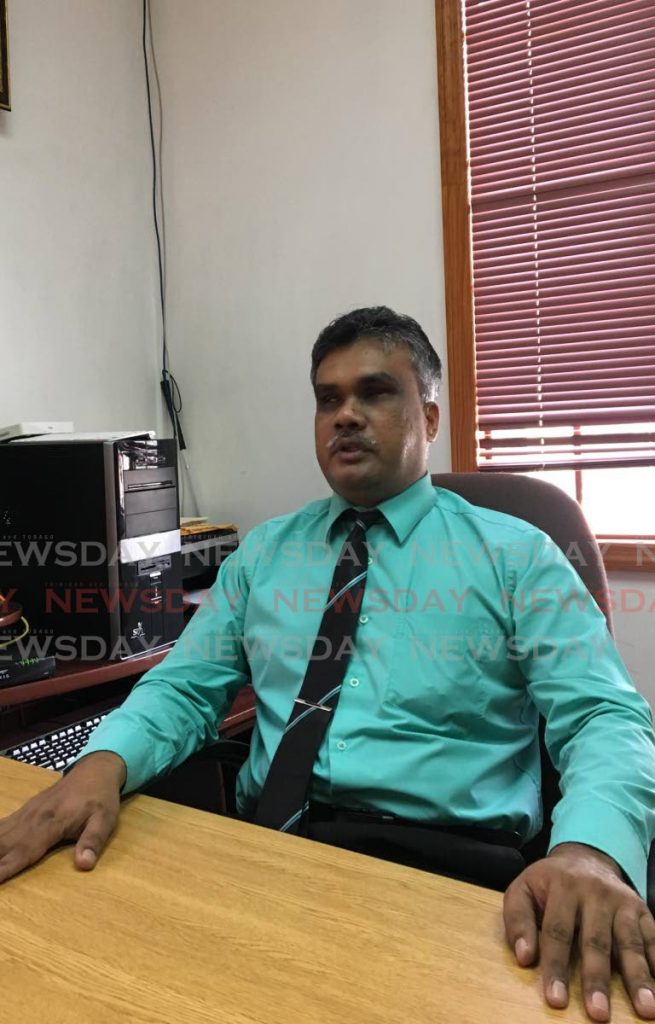Don’t condemn blind students to handouts or basket-weaving

EXECUTIVE officer of the Blind Welfare Association Kenneth Suratt appealed to the Prime Minister not to condemn visually impaired children to a life of basket-weaving or handouts. He wants them incorporated in the plans to transform the education sector.
He said such children must be given an equal opportunity and access to education to fulfil their potential.
“Please do not leave our children who are blind behind. If you do that, they would have to keep making baskets and stretching their hands for a disability grant.”
Suratt who also sits on the Equal Opportunity Commission (EOC) made the appeal to the Dr Rowley and Education Minister Dr Nyan Gadsby-Dolly during the Spotlight on Education: Transforming Education on Thursday night.
“Please, I am begging and pleading to everyone here in this room (at the National Academy for the Performing Arts) to give our children who are blind an opportunity to become whatever they want to become in this world.”
Rowley said government was committed to offer every child in this country an opportunity for a good education.
Thursday’s session came at the end of a six-week consultation aimed at transforming the education system. Suratt said virtual classrooms were challenging to visually impaired who now only have the option of learning through hearing and not touch.
He said children who are blind must touch to identify an object as describing it alone will not help. He gave the example of a square or a circle.
He suggested consideration be given to include the touching and hearing concepts during certain times of the week
Gadsby-Dolly indicated that the remote home-based learning system under which they are now operating is far from ideal but it is one to which the country has to adapt because of the covid19 pandemic.
She said the trajectory of the pandemic forced this approach instead of the blended mix, incorporating technology with some face-to-face interaction.
She appealed to citizens to have a responsible Christmas season so they can get back to the phased face-to-face reopening of schools.
“We need to get back to the point where not only the visually impaired or children in special schools or examination children or little ones who were just learning to read when school would have closed, but all can get back to the interaction needed with the teachers.
“This remote and home-based learning is the best we can do at the moment. We are doing our best to make it as quality as possible, as accessible as possible but this is not the gold standard for education. What we want is to get back to face-to-face, incorporating technology so, our students have the best preparation for the world they live in now. “
Minister in the Ministry of Public Administration and Digital Transformation Hassel Bacchus said technology really helps the blind and other students with disabilities. He pledged to continue to develop new pieces of technology to aid in the way children with disabilities are educated.


Comments
"Don’t condemn blind students to handouts or basket-weaving"